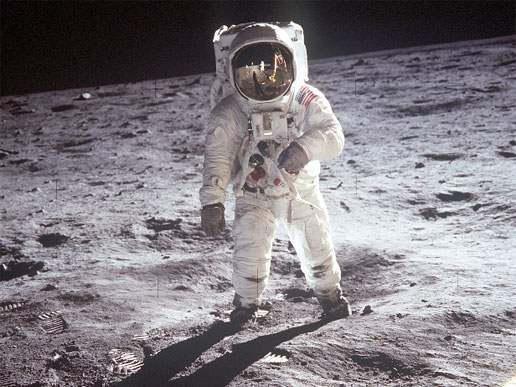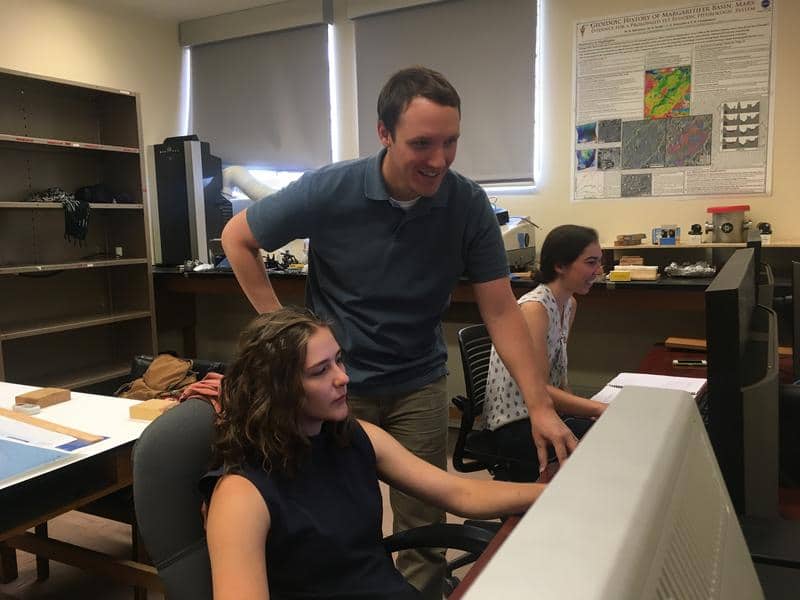Four score and eight years ago, Clyde Tombaugh brought forth on this continent a new planet (apologies to Abraham Lincoln on many counts, including being off by one year). The planet’s name was Pluto and its discovery culminated the search begun by Percival Lowell for Planet X — a theoretical new member of our solar system. Last week, a team of astronomers including NAU’s Chad Trujillo announced their own startling discovery while carrying out a modern Planet X… Read more
NAU astronomer on team that discovered 12 new moons of Jupiter

By Kerry Bennett
Office of the Vice President for Research
The Carnegie Institution for Science recently announced the discovery of 12 new moons of Jupiter, bringing the total number of moons orbiting the solar system’s largest planet to 79—a finding that has garnered international media coverage, including NBC News, The Washington Post, BBC, the New York Times,… Read more
For Moon Day, learn how NAU researchers are advancing our understanding of Earth’s nearest celestial neighbor

By Heidi Toth
NAU Communications
Is there life on the Moon?
On July 20, 1969, there was—in the form of astronauts Neil Armstrong and Buzz Aldrin walking on the Moon. And while U.S. scientists have not yet found evidence of lunar life, much of the focus of today’s research is how we can put people back on the Moon, this time more permanently, including building… Read more
Almost 50 years later, Flagstaff’s lunar legacy lives on | Local | azdailysun.com
When it comes to issues of outer space, there’s no question that Flagstaff is a Pluto town, through and through. But for the next year or so, the city’s astronomical focus will shift gears to center on the moon.
Exactly one year from today marks the 50th anniversary of the first time humans walked on that distant world, and Flagstaff played an integral role in their preparations for the history-defining mission.
From 1961 to 1972, the Apollo teams used northern Arizona’s… Read more
Jupiter’s moon count reaches 79, including tiny ‘oddball’
Twelve new moons orbiting Jupiter have been found—11 “normal” outer moons, and one that they’re calling an “oddball.” This brings Jupiter’s total number of known moons to a whopping 79—the most of any planet in our Solar System.
A team led by Carnegie’s Scott S. Sheppard first spotted the moons in the spring of 2017 while they were looking for very distant Solar System objects as… Read more
Brain Food: Mars Rover Digs Up Organic Material | KNAU Arizona Public Radio

Mars Rover Curiosity has dug up organic material in rocks just below the surface of what’s believed to be an ancient Martian lake bed.
Planetary geologist Mark Salvatore of Flagstaff says the discovery of carbon-based molecules, butane and propane, suggest they may be the result of the breakdown of larger, more complex organic molecules—the kind that could be related to life.
“These organic molecules are really the backbone to what could form life, and the fact that we found all these… Read more